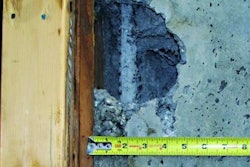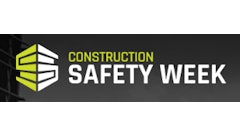The state can use private dollars to help pay for public road and other infrastructure projects, thanks to the $6.8 billion transportation bill that Gov. John Kasich signed into law during a public ceremony yesterday.
House Bill 114, which cleared the Senate unanimously and passed along party lines in the GOP-controlled House last week, allows for a private entity to partially or fully fund construction costs for a public infrastructure project.
In turn, private groups that partner with the Department of Transportation on projects can reap profits through interest payments from the state, toll collections or other user fees.
Kasich's overall agenda for the state includes privatizing economic development, selling five prisons and possibly leasing the Ohio Turnpike.
"The provision on the public-private partnerships, combined with some of the other privatization efforts that we've made, can really get Ohio into a much more-strengthened position," Kasich said.
Jerry Wray, Department of Transportation director, said the use of private dollars would not add to the overall cost of projects and would enable the state to divert some of the risk on projects to the private sector.
Wray cited the project to replace the Brent Spence Bridge at Cincinnati, which carries I-71 and I-75 across the Ohio River into Kentucky, as a project that could be completed at lower cost if the state partners with the private sector.
Under the new law, the state can solicit partnerships for projects, or private groups can propose partnerships unsolicited.
David Rose, a spokesman for the Department of Transportation, said the state soon will study which projects would benefit by seeking private-sector participation.
Partnerships were not a part of the bill when the House voted on it the first time. Rep. Ron Amstutz, R-Wooster, chairman of the House Finance Committee, said the inclusion of public-private partnerships by the Senate caused House Democrats to vote against the bill.
"Ultimately, I think there will be recognition of the value, of this being an innovative component," Amstutz said.
Wray said the bill includes $1.6 billion for maintenance of the state's existing infrastructure and is dependent on passage of a federal transportation-spending plan.
Included in Ohio's transportation law is the opportunity for commercial truck drivers to register their vehicles on the Web.
The law also allows engineers and contractors to collaborate on the design and bids for projects, a step the Kasich administration said will expedite the process.
Also included is a provision that raises the cost threshold triggering a report by police to the Department of Public Safety on a traffic accident, from $400 in damage to $1,000.
Numerous law-enforcement officials in Columbus and at the state level said the provision will not affect officers' protocol for responding to accidents but will reduce their paperwork.
"It isn't going to have a huge effect," said Dean Fadel, vice president of government relations for the Ohio Insurance Institute. Fadel's group aided Dayton police in crafting language for the provision.
"Officers are still going to come out to crash sites," Fadel said. "If there's clear evidence of wrongdoing, or if there is any bodily injury, regardless of the cost estimate, a police officer is still going to issue a citation or file a report."
Kasich also signed House Bill 30 yesterday; it eliminates the mandate for schools to fund all-day kindergarten programs.


















